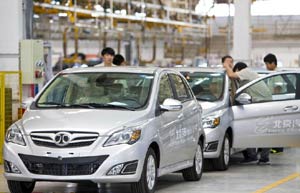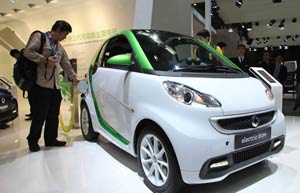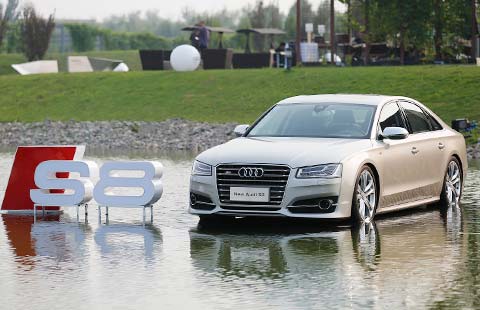Charging toward a new-energy market
By Li Fusheng (China Daily) Updated: 2014-08-25 07:17Compounding the problem, it takes almost double the time to charge batteries in frigid temperatures.
Sun of the Beijing Institute of Technology said his experiments show that batteries requiring 5.5 hours to fully charge at 25 C take 9 hours at minus 25 C.
Earlier this year Tesla CEO Elon Musk apologized to Model S owners in Norway when they complained their cars were difficult to charge when temperatures fell below zero.
And under extreme conditions batteries do not charge at all.
"It is just like your mobile phone. It will turn off and will not charge when it is too cold," said Xiong Jinfeng, a new energy engineer at Higer Bus Company.
Battery companies around the world are trying to tackle the problem in different ways. But before any major breakthrough is made, some electric vehicle producers are providing batteries with a good working environment by installing heaters and air conditioning systems to keep them in their power zone.
Lin Cheng, deputy director of the National Engineering Lab for Electric Vehicles, said the approach is mainly for electric buses because the cost is too high for private users.
He said the problem might be solved in four to five years as scientists push back frontiers in the field.
"It won't be a dream to charge an electric car for 10 minutes at minus 20 degrees and it will run 300 kilometers," said Lin.
He said electric vehicles have a bright future despite current problems because they provide smooth operation, strong acceleration, require less maintenance than internal combustion engines and offer a cost-effective option for many.
Statistics from the China Association of Automobile Manufacturers show that 25,900 new-energy vehicles were produced in the first seven months of the year. Of them, 13,800 were pure electric, almost seven times the figure in the same period last year.
With universities a major source of innovation, Wang Duoxiang, dean of the College of Engineering at Peking University, called for universities and companies to join together to solve existing problems.
"Universities play a very important role in promoting industrial development. Among others, IT giants Cisco and Intel give almost half of their R&D funds to universities," Wang said when he addressed the opening ceremony at an industrial park for new-energy vehicles in Baotou, Inner Mongolia.
 |
 |
| Get an up-close look at electric car production |
|
- Change for the better in polluted Hebei
- China invests 30b yuan on Tibet water infrastructure
- China's developed regions to aid Tibetan areas
- Organization to help boost Tibet's tourism industry
- 30b yuan lock-up shares eligible for trade
- Direct flights to link Jinan, Singapore
- Half-year profit of insurer China Pacific jumps 25.3%
- Charging toward a new-energy market
















